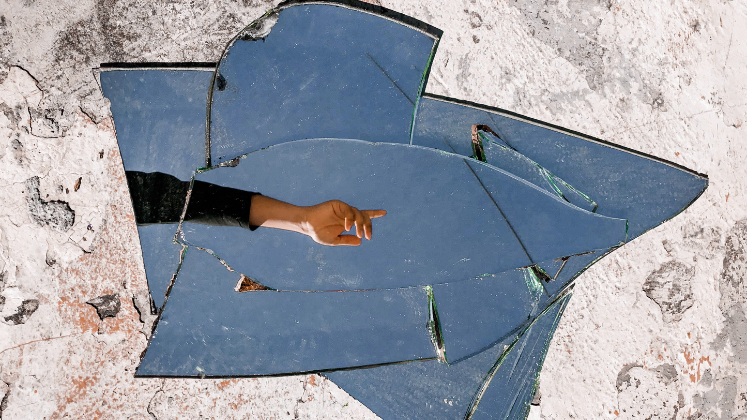Universities are required to tell stories about the impact of their work on the wider world and these tales have a perfection that often elides the imperfect muddling through inherent to much collaborative work. Tadhg Caffrey argues a new emphasis on ‘Imperfect Impact’ can allow research communities to reflect on the challenges and opportunities of partnership work, while still striving to make these relationships stronger.
“Perfection belongs to narrated events, not to those we live.”
As we await Research England’s review of the REF2021 Impact Case Studies, university teams continue to explore the stories behind the stories. Impact Case Studies are high profile examples of universities working in perfect harmony with partners to create positive global change. The REF is just one space where these stories are told. We expect universities around the world to place huge stock on their unique stories of positive influence. We are becoming accustomed to working inside the impact agenda and its expectation of perfection.
The influence that the impact agenda places on universities is well-rehearsed, and thankfully is becoming more nuanced. In recent years we have seen attempts to re-focus the ‘impact agenda’ as a thoughtful, reflective ethos and as a space for authentic and honest partnerships.
However, on the ground our research communities still very much feel a core tension: how can we hold the simultaneous need to advocate for our disciplines by sharing incredible stories of change, while maintaining our credible stories as contributing partners to this change? Despite positive noises about new ways to articulate and celebrate impact, there persists an overemphasis in our working environment on outcomes and outputs, on conclusions, on exemplars and end points.
It is normal for research communities to celebrate their positive impact. High profile impact case studies are an excellent way of describing the huge benefit that research can have in the world, and usually net more attention, people, and funding to a cause. These stories often come at the end of a multi-year, multi-million pound research enterprise, and therefore celebrate a rarefied part of our research environment. The scale of these achievements often feels unattainable, particularly when the longer, messier story of their creation is hidden to emphasise a positive story of triumph. Research cultures are poorer when the pathways for our colleagues to build towards these successes are opaque or mysterious.
High profile stories of impact can also hurt research relationships. The tone of our storytelling often points to the attribution of positive change, rather than celebrating how universities play a contributing role in that change. Universities are often the main characters in these stories, further implying that all relevant expertise, skills, resources, and creativity for change start there. We of course know that this is not true on the ground, and that impact is only realised when created in partnership.
When we lose sight of how we work, and the messy, imperfect processes involved, we lose a chance to learn, we lose a chance to help others develop, and we lose a chance to create more empathetic and equitable partnerships. Many universities and their partners have found ways to bring forth different stories. The Hidden REF for example, celebrates different conceptions of research excellence and production.
A recent event at The Bartlett, UCL’s Faculty of the Built Environment embraced the idea of ‘Imperfect Impact’ as a way to explore this tension. ‘Imperfect by Design’ is a yearly showcase of the processes of partnership work and engagement hosted by the Bartlett Community of Engagers. The event brings together staff, students, and their partners in a relaxed setting to share stories of imperfection in their research, teaching, and learning journeys. We aim to break the usual tone of professional performance that all of us bring to seminars and conferences. By disrupting the expectations of a standard and staid university meeting we can get closer to sharing openly the challenges and opportunities of our work. This year’s event featured demonstrations and explorations of engagement activities, including partnership work that is contributing to improved evaluation skills amongst community groups, discussions of gentrification on the high street, sustainable sanitation through community engagement, and free drawing as an exploration of mindsets and values. The event was punctuated by improvised music and support from Lionbeat, a bass culture development agency.
Running through the event was the core theme of ‘Imperfect Impact’. We shared stories of success and failure, some personal and some professional, and in doing so took a step to normalising an emphasis on sharing how we think, live, and work. When we can share feelings of failure and frustration, we can also support each other in our learning. We have an opportunity to take the time and resource that the “impact agenda” affords us, and use it to establish open, transparent, and reflective research environments.
At the same time we must acknowledge that our partners often do not have the privilege of embracing imperfection as we might. As Joanna van der Zanden states in Imperfections: Studies in Mistakes, Flaws, and Failures, “it is important not to idealize imperfect looks, shapes, or stories when they reveal social ills, injustice, and poverty; and not to gloss over problems of privilege in thinking about imperfections” (pp301-302). ‘Imperfect Impact’ should not stop us from questioning the power dynamics of our relationships, and should push us to make them more diverse and equitable.
Understanding and celebrating imperfection is also an act of sharing the power we are afforded in universities. When we concede and explore ‘Imperfect Impact’ we can relate better to others and in turn become more relatable. We should not be tempted to use ‘Imperfect Impact’ as an excuse to stop working towards more positive research, teaching, and learning environments. But we can embrace the messiness of that process. When we share our imperfection and efforts to grow, we develop more lasting, empathetic and collaborative partnerships. We create more space for different types of stories, from different people and perspectives. The Bartlett Faculty of the Built Environment will continue to share our power, and you can find ways to get involved with our events, podcasts, and newsletters on our website.
Universities will continue to tell those “perfect” impact stories found in case studies and press releases, but our research communities can use the power of ‘Imperfect Impact’ to explore and celebrate the complicated lives behind those stories.
The content generated on this blog is for information purposes only. This Article gives the views and opinions of the authors and does not reflect the views and opinions of the Impact of Social Science blog (the blog), nor of the London School of Economics and Political Science. Please review our comments policy if you have any concerns on posting a comment below.
Image Credit: Motoki Tonn via Unsplash.








1 Comments